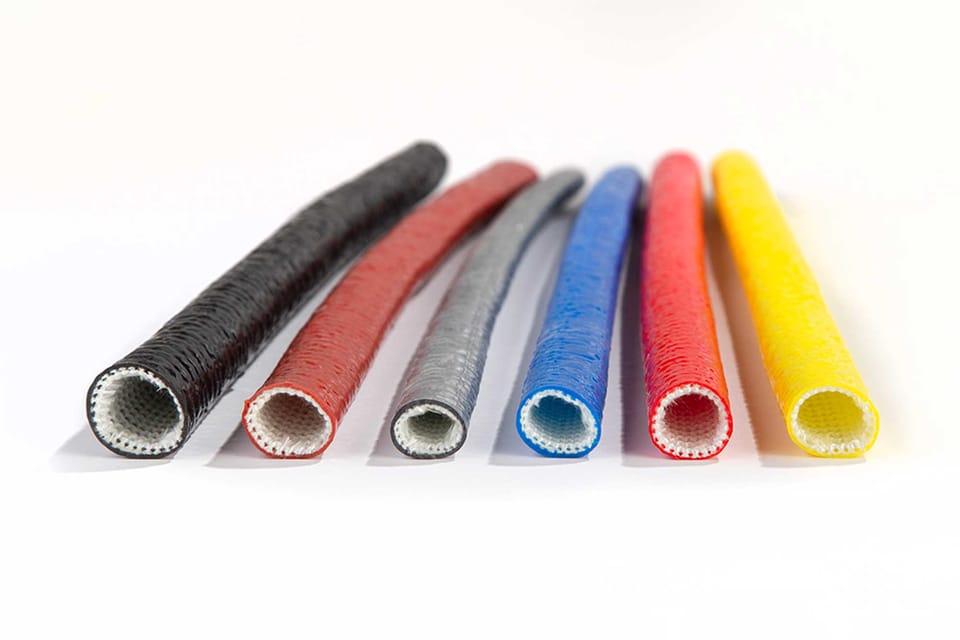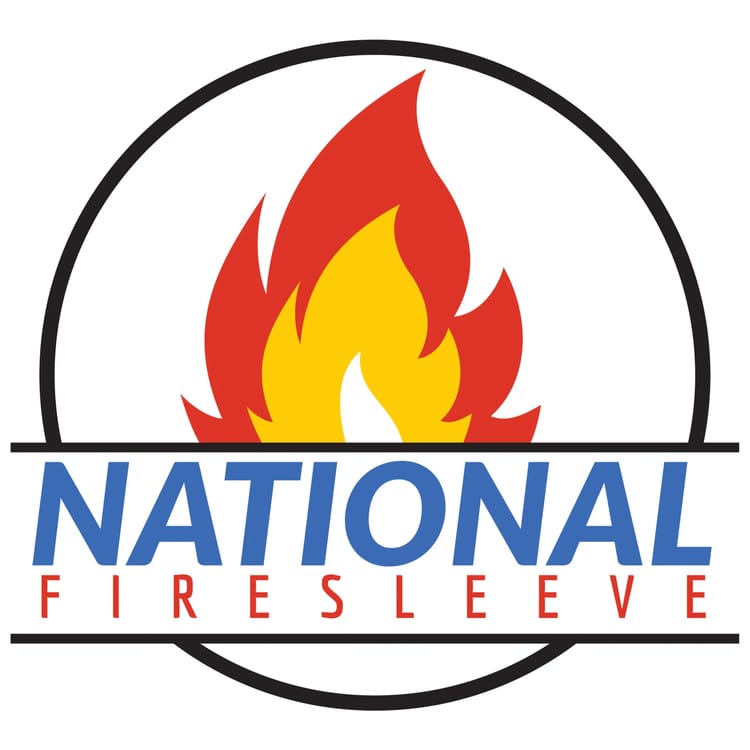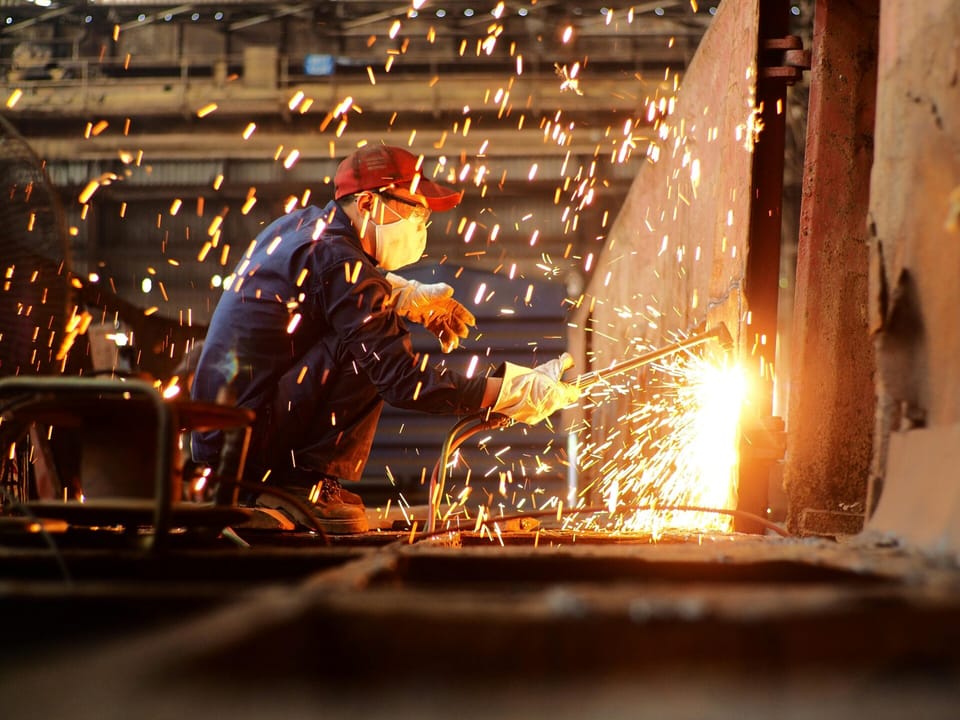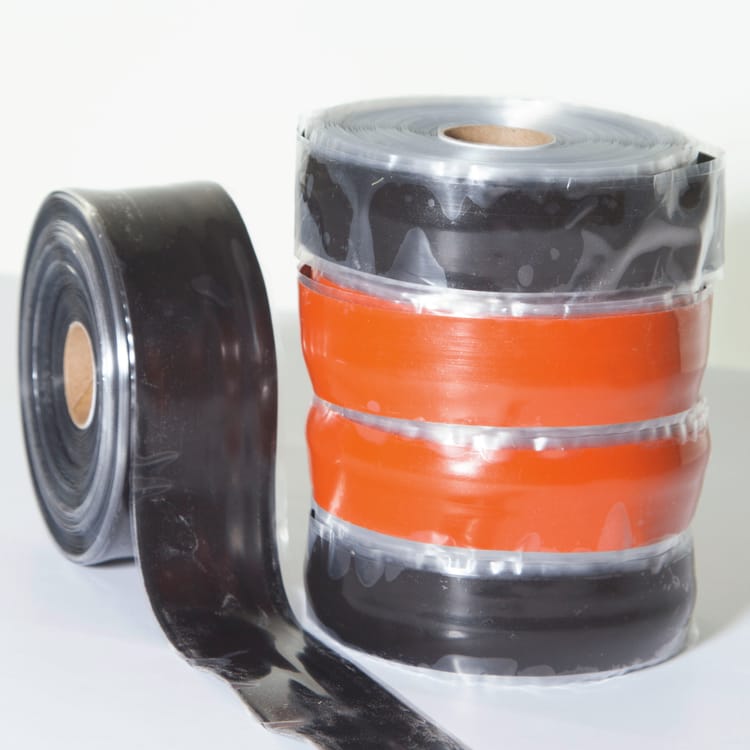High quality hose sleeves from National Firesleeve serve a dual purpose across a range of industrial settings, plant and machinery. Not only do they prevent environmental damage to your hydraulic hoses, but they also protect the environment from damage caused by the hydraulic fluids that those hoses contain.
Protecting your hydraulic hoses
Firesleeve fire resistant hose sleeves and Firesleeve Flexguard Hose Burst add an extra layer of essential protection to any hydraulic hose system. They can prevent damage due to flexing and cracking, fires and molten splash, as well as environmental factors like UV radiation, oils, acids and alkalis, and the hydraulic fluid itself.
Protecting your team
Exposure to hydraulic fluid, ranging from occasional spills and splashes to long term exposure, can have a number of health consequences for operators. Hydraulic fluid often contains a number of additives that cause toxicity issues, including anti-wear agents, antioxidants, corrosion inhibitors and demulsifiers. These are all used to improve the performance of the hydraulic fluid, but they can all have significant health consequences if the pipes are not properly protected by products such as Firesleeve, and leaks or bursts occur.
Health risks of hydraulic fluid
Hydraulic fluid can cause a number of health risks for machine operators, including:
- Skin problems – if hydraulic fluid is in contact with the skin, it can cause irritation, rashes and other dermatological issues
- Eye problems – hydraulic fluid in the eyes can cause irritation, and redness, with repeated exposure risking long term damage
- Respiratory problems – if hydraulic fluid is inhaled, it can cause breathing difficulties, headaches and dizziness
- Gastrointestinal problems – ingestion of hydraulic fluid can lead to nausea, vomiting and intestinal discomfort
Protecting the environment
As well as the direct health risks to your team, leaking hydraulic fluid from pipes that are not protected by products such as Firesleeve, poses a significant threat to the local environment. It doesn’t need a large spill of hydraulic fluid to contaminate the local environment. Regular smaller discharges, or small-scale persistent leaks, can cause bioaccumulation, leading to a build-up of contaminants over time.
Environmental risks of hydraulic fluids
The environmental risks from hydraulic fluid include:
- Direct exposure – animals that are directly exposed to hydraulic fluid will suffer from many of the same health issues as humans, such as those discussed above.
- Contaminated water sources – spills and leaks from hydraulic pipes and hoses can contaminate both standing water and local water courses. This can affect flora and fauna in two ways. Firstly, animals and plants that drink the contaminated water can be affected and even poisoned. This includes aquatic life in contaminated ponds and rivers. Secondly, animals that eat plants that have taken up contaminated water can also suffer from secondary poisoning.
- Contaminated soil – many hydraulic fluids, especially oil-based formulas, do not break down easily and can persist in the soil for a long time. This will not only contaminate plants, but also the animals that feed on them, for many years after a spill.
A legal and moral obligation
Both on a national level and in many individual states, the legislature is clamping down on the environmental performance of businesses. This includes introducing new safety measures around the use of hydraulic fluids. However, here at National Firesleeve, we believe that your responsibility goes much further than simply complying with new codes and regulations.
We all have a duty to protect our workforce and to protect the environment around us, and with the help of Firesleeve’s expertise and experience, you can do both efficiently and cost effectively. Talk to our team today about how Firesleeve fire resistant hose sleeves and Flexguard Hose Burst can help you to maximise the benefits of hydraulic systems, while minimising the risks.






